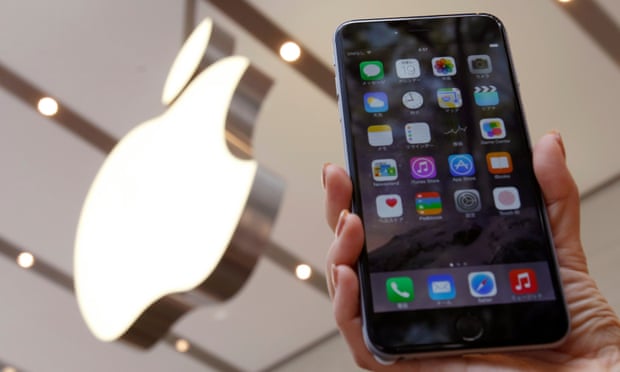Apple is currently
resisting a court order filed by the Justice Department last Friday to assist
the FBI in unlocking the iPhone of Syed Farook, one of the two gunmen involved
in the San Bernardino shooting last December.
The FBI is asking Apple to disable an iPhone security feature that
erases an iPhone’s data once a password is entered incorrectly ten times. Once that function is disabled, the
government can crack the password without the risk of data being deleted. Data encrypted on the device
would most likely include evidence that could provide
key clues as to why the shooters targeted certain victims, if the shooters were
planning other attacks and if they received direction from overseas (Washington
Post).
Justice
Department lawyers question Apple’s steadfast refusal to cooperate, wondering
whether the tech giant is prioritizing their “marketing strategy” over a
terrorist investigation. ”Apple’s current refusal to comply with the Court’s
Order…appears to be based on its concern for its business model and public
brand marketing strategy,” Justice Department attorneys wrote in the court
filing.
According to
Apple’s CEO, Tim Cook, “The U.S. government has asked us for…something we
consider too dangerous to create. They have asked us to build a backdoor to the
iPhone” (Washington Post). Creating this “master
key” to disable security on Farook’s phone would provide the FBI with important
information related to the case; however, it could also jeopardize the security
on every iPhone and risk the safety/privacy of citizens if the bypass is found
in the wrong hands. Apple believes that the
court order is a direct “overreach by the U.S. government” and that it would
set a dangerous precedent for the future in which other software companies
could be forced to hack into its customers’ devices (CNN).
A federal court
hearing in Riverside, California has been scheduled for March 22nd
to resolve the dispute. It is expected
that many privacy advocates and civil liberties groups will file various amicus
briefs (USA Today).
What do you
think? Is Apple justified in their resistance to cooperate in creating a
“backdoor”? Is the information found in this phone worth potentially jeopardizing the
security/privacy of millions of iPhone users?

2 comments:
I think this is a very interesting situation. It bears unmistakable similarities to the relationship between the NSA and their protocols and the security of the private information of the masses of Americans with their technological devices. My stance on both situations remains in favor of the privacy and safety of every American, rights that should be guaranteed by the 4th Amendment's limitations on unreasonable search/seizures. A creation of this master key to information on possibly every single iPhone is unthinkably dangerous and unpredictable. Not to mention the fact that these same terrorists could also get their hands on this, and we're essentially back at square one. So I don't think that Apple is trying to preserve face or keep its marketing strategy, at least not as a primary objective. They don't want to be responsible for compromising the rights of Americans . Still, I firmly believe that America should demonstrate that we do not tolerate acts of terrorism in any way, especially ones as heinous as the San Bernardino shootings. Therefore, situations like these clearly demonstrate the necessity of increased regulations on things like gun control and more active precautions.
I'm split 50/50 on agreement/disagreement with Kristen's perspective. We both agree that Apple building a backdoor to iOS would be a grave mistake both in terms of violating the trust of the American people in both Apple and the government. The issue that arises from Apple caving to the creation of a backdoor is farther reaching and much more insidious than a mere breach of 4th Amendment Rights in this one case. The consequences would lead to Apple setting a worldwide precedent for ALL tech companies that says that governments have the ability to force them to undermine the cybersecurity of their software, undermining Apple's value of customer privacy in countries like China whom would likely follow up in the event of Apple caving to this request. The point I differ on with Kristen is that about the NSA's protocols about the data of American people, and this point of contention is a minor caveat; it's about sharing data in regards to cyberattacks/hacks, such as the one regarding Sony and The Interview. In this case, the need to share information regarding these attacks tends to supersede the 4th Amendment as a result of cybercrime's growing and adapting nature, which bares sharp contrast to our nations stagnating cybersecurity.
Source about Apple's case against:
http://www.wired.com/2016/02/apple-fbi-privacy-security/
Post a Comment